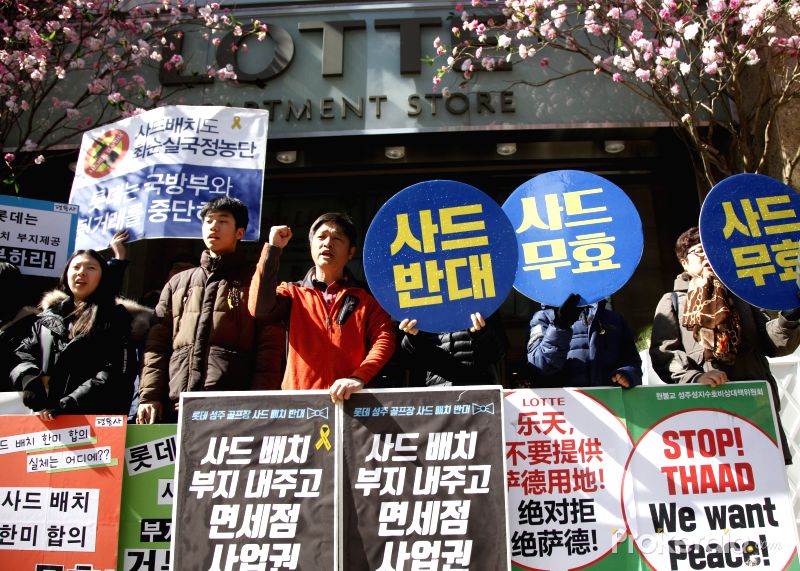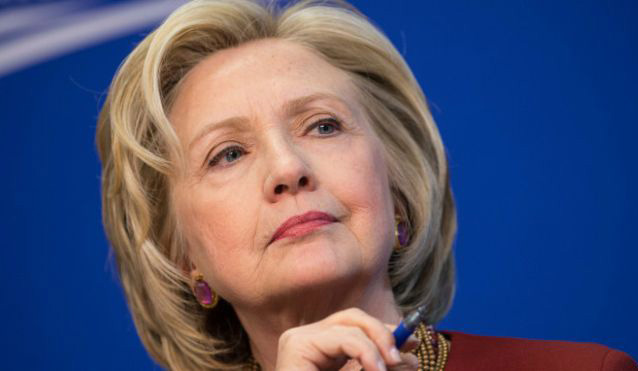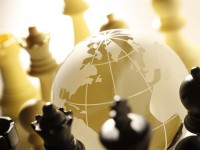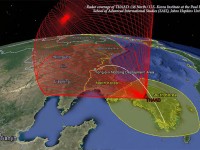Li Bin, Professor, Tsinghua University
Mar 06, 2017
The decision to deploy a Theater High Altitude Area Defense (THAAD) system in the Republic of Korea (ROK) by the ROK and the United States caused strong diplomatic reactions from China. Further negative interactions between the ROK and China may develop if the two countries cannot find a solution.

Xu Duo, Fox Fellow, Yale University
Mar 03, 2017
The recent Lotte crisis is a recurring incident in East Asia’s power dynamic: one country wields economic weapons to score geopolitical goals against another. In a region where China and U.S. lack strategic trust and security cooperation, everyone stands to lose when economics and geopolitics get tangled. Keeping the two in separate dimensions and preventing risks from one realm spilling over into the other are imperative.

Doug Bandow, Senior Fellow, Cato Institute
Oct 20, 2016
Hillary Clinton is expected to be more belligerent than Obama in dealing with Beijing. But the U.S. cannot expect confrontational or coercive tactics to succeed. Doing so could damage further cooperation between the two countries and drive Beijing closer to North Korea. Instead, the U.S. should aim to take a more diplomatic approach to their relationship with Beijing.
Yin Chengde, Research Fellow, China Foundation for International Studies
Oct 19, 2016
The confrontation regarding plans for the THAAD system might lead to unbearable consequences if the situation gets worse. The only reasonable course for Washington and Seoul is to abandon the deployment.
Yin Chengde, Research Fellow, China Foundation for International Studies
Sep 27, 2016
In the face of risks and disagreements, the two sides should restart negotiations, and sincerely embark on the road of resolving both the unsettled state of war from the 1950s and the current stalemate over the THAAD deployment in South Korea.
Darcie Draudt, non-resident James A. Kelly Korean Studies fellow, Pacific Forum CSIS
Sep 02, 2016
In early July, South Korea decided to allow the United States to deploy the Terminal High-Altitude Area Defense (THAAD) system. At the heart of this issue is the difference in how China and the United States view the role of South Korea and decisions related to the security and stability of the peninsula.

Shi Yinhong, Professor, Renmin University
Aug 23, 2016
Amid changes in global political culture and turbulent relations between powers, it is unprecedentedly difficult to create, readjust and implement rules of global governance. Efforts must be made to resist the populist, nativist and nationalist political culture that is expanding and increasing throughout the world so that major-power relations can be stabilized and improved.
Ian Armstrong, Senior Analyst, Global Risk Insights
Aug 19, 2016
The author argues that the agreement to deploy THAAD to South Korea may mark the first major step in a slow shift towards more strategically mandated Chinese missile development.

Yang Xiyu, Senior Fellow, China Institute of Int'l Studies
Aug 18, 2016
No matter how the wrangling over THAAD evolves, it will ignite strategic gaming as well as new and high military technology competition among major powers. Pentagon planners may be rejoicing over the ROK decision to embrace the American project, but the US will have no control over the reaction to the deployment.
Back to Top

- China-US Focus builds trust and understanding between the U.S. and China through open dialogue among thought leaders.
- Our Offerings
- Topics
- Videos
- Podcasts
- Columnists
- Research Reports
- Focus Digest
- Stay Connected
-
Thanks for signing up!
- Get the latest stories from China-US Focus weekly.